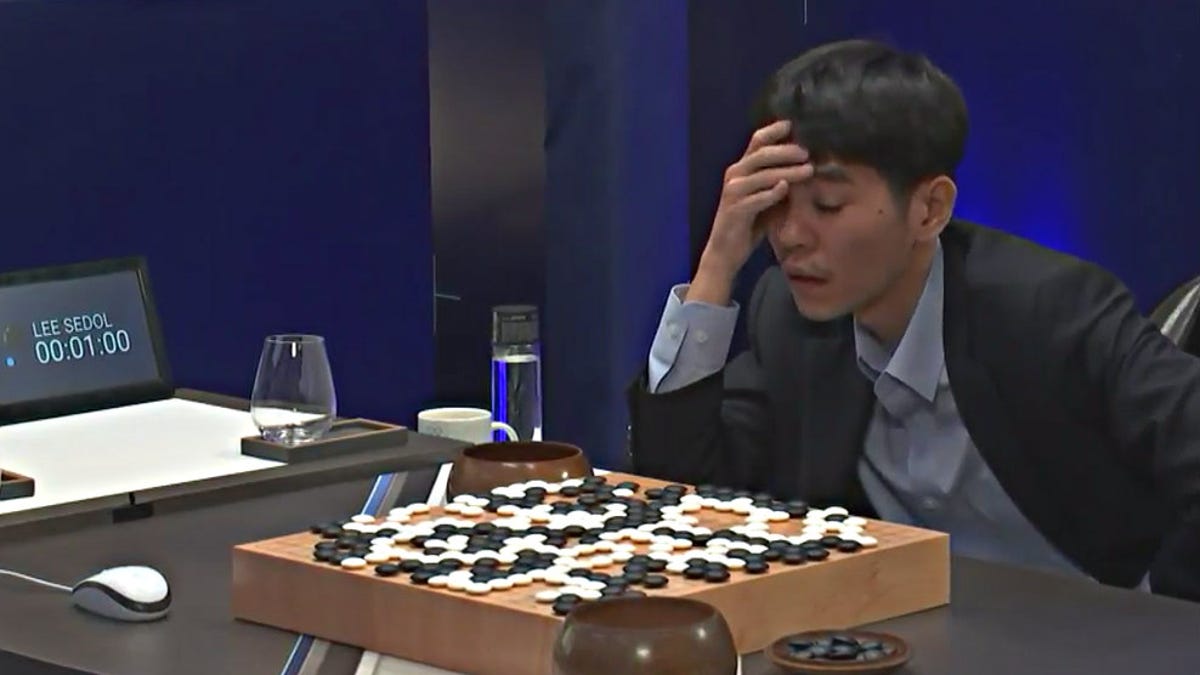AlphaGo wins a close one to wrap up battle of man vs. machine
Google's artificial intelligence program takes four out of five Go games against one of the world's top-ranked players.
It was an intense competition between man and machine, and in the end, the machine took home the title.
On Tuesday, Google's AlphaGo artificial intelligence program won the fifth and final round game of Go in a bout with Lee Sedol, one of the greatest Go players in the world. AlphaGo took four out of the five games in a contest that marked a noteworthy leap forward for computer smarts.
That's not to say the computer was perfect. After losing the fourth game, AlphaGo hit a rough patch in game five, but continued on to defeat Lee, who resigned 280 moves in.
"It was difficult to say at what point AlphaGo was ahead or behind, a close game throughout," commentator Michael Redmond said. "AlphaGo made what looked like a mistake with move 48, similar to the mistake in game four in the middle of the board. After that AlphaGo played very well in the middle of the board, and the game developed into a long, very difficult end game."
The brainchild of Google's DeepMind team, AlphaGo uses sophisticated machine learning technologies such as neural networks to evaluate board positions and determine which moves to make.
It's artificial intelligence for the win.
The ancient game of Go may look simple on the surface as two players move black and white stones around a board in an attempt to occupy the greater number of spaces. The complexity lies in the vast number of ways the stones can be set up and the variety of possible moves and outcomes, and that makes Go a greater challenge for AI than chess.
AlphaGo's wins came as a surprise to many who thought artificial intelligence wouldn't be able to compete against top human Go players for years. But for all the current activity in AI, including its use in everyday technology such as the image recognition that Facebook performs, it remains quite limited compared with people's ability to adapt, make decisions and solve real-world problems.
The same methods that DeepMind employed to master Go could one day be applied toward pressing tasks such as climate modeling and disease analysis. Yet such luminaries as SpaceX CEO Elon Musk, Microsoft co-founder Bill Gates and physicist Stephen Hawking have expressed concerns about AI getting too smart for our own good.
"One can imagine such technology outsmarting financial markets, out-inventing human researchers, out-manipulating human leaders, and developing weapons we cannot even understand," Hawking said in an article he co-wrote in May 2014 for The Independent. "Whereas the short-term impact of AI depends on who controls it, the long-term impact depends on whether it can be controlled at all."
AlphaGo's victory came with $1 million in prize money, an amount Google DeepMind will donate to Unicef, STEM (science, technology, engineering, and math) charities and Go organizations.
This isn't the first time AlphaGo has defeated a human opponent at the game of Go. In January, it swept the boards against European champion Fan Hui a five-game series.


